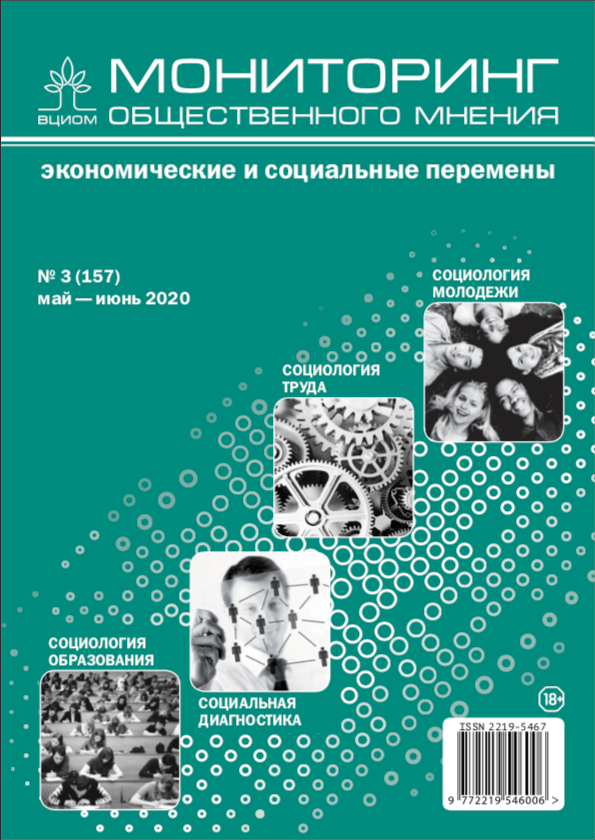Social, Territorial and Gender Inequalities in Educational Trajectories of the Russian Youth
DOI:
https://doi.org/10.14515/monitoring.2020.3.1603Keywords:
educational trajectories, social inequality, gender inequality, territorial inequality, inequality in education, longitudinal studies, TrEC, interprepative qualitative sociology, classification treeAbstract
The article investigates how social, territorial and gender inequalities shape educational trajectories of the Russian young people within four years after they graduate from the 9th grade. Empirical basis of the study encompasses the data from the first, the second and the third waves of the Trajectories in Education and Careers (TrEC) Russian Longitudinal Study conducted in 2012, 2013 and 2015.
To reveal various inequalities through the empirical data the study applies investigative and descriptive approach, i.e. the classification tree method rather than logistic regression traditionally used in this field. Five groups of trajectories are singled out: (1) enrollment in a secondary vocational school after the 9th grade, (2) enrollment in a non-selective university after the 10th-11th grades (for the enrolled applicants with an average Unified State Exam score of 70 and lower); (3) enrollment in a selective university after the 10th-11th grades (for the enrolled applicants with an average Unified State Exam score of 70 and higher), (4) termination of education after school graduation. The results show that academic performance is the key factor shaping educational trajectories. When choosing an educational path, parental educational background appears to be important for students in the medium-scoring and low-scoring groups, and place of residence, for students in the high-scoring group. The only group where no attention is paid to gender is a group of low-scoring students whose parents have no higher education background.
Acknowledgments. The study was implemented in the framework of the Basic Research Program at the National Research University Higher School of Economics (HSE University) in 2019. The authors express gratitude to D.Kurakin, head of the Laboratory for Cultural Sociology and Anthropology of Education (HSE Institute of Education), for the fruitful cooperation, and M. Gurin, intern researcher at the Laboratory for Cultural Sociology and Anthropology of Education (HSE Institute of Education), for his help in constructing the graphs.
Downloads
Published
How to Cite
Issue
Section
License
Copyright (c) 2020 Monitoring of Public Opinion: Economic and Social Changes Journal. Public Opinion Monitoring ISSN 2219-5467

This work is licensed under a Creative Commons Attribution-NonCommercial-ShareAlike 4.0 International License.






